THE ROYAL HOTEL (2023)
Canadian backpackers Hanna and Liv take a job in a remote Australian pub for some extra cash and are confronted with a bunch of unruly locals and a situation that grows rapidly out of their control.

Canadian backpackers Hanna and Liv take a job in a remote Australian pub for some extra cash and are confronted with a bunch of unruly locals and a situation that grows rapidly out of their control.


Each year, a multitude of young adventurers embark on a quest for affordable and culturally enriching ways to experience the world. While this yearning for exploration is a universal thread among many young travellers, Hollywood often fails to accurately portray the perils that accompany such journeys. Pete Gleeson’s unsettling documentary Hotel Coolgardie (2016) provided audiences with a firsthand glimpse into the verbal abuse and oppressive working conditions that often accompany wanderlust. It unveiled the harrowing experiences of two female backpackers employed at an isolated bar in the Australian Outback.
Inspired by Gleeson’s documentary, writer-director Kitty Green’s sophomore feature, The Royal Hotel, delves into themes of female objectification and the aggressive impositions that characterize male-dominated spaces. This gripping exploration lays bare the infrastructure inequalities that persist even in the most remote corners of the globe.
Canadian friends Hanna (Julia Garner) and Liv (Jessica Henwick) embark on a backpacking adventure across Australia. Their carefree journey takes an unexpected turn when they discover their bank accounts have been drained, leaving them stranded and penniless. Desperate to find any work available, they accept a temporary job at The Royal Hotel, a rundown bar in a remote town.
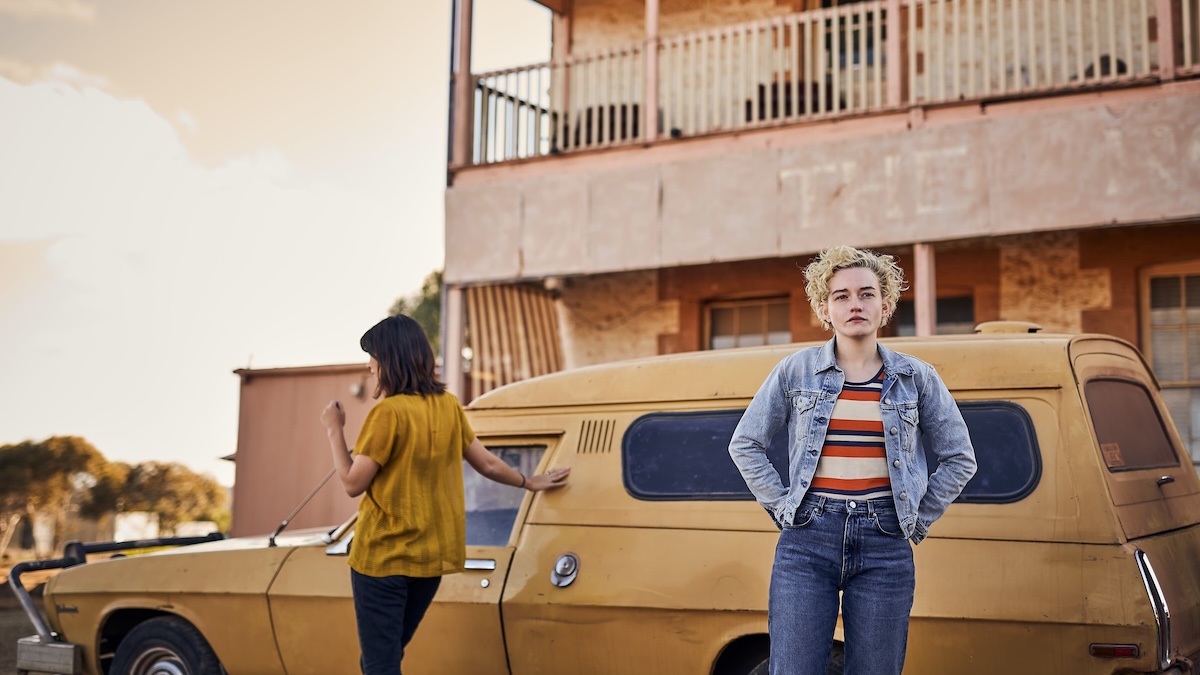
Hanna, initially hesitant about the prospect of working in such a rough environment, is persuaded by her adventurous and outgoing friend, Liv. Upon arriving at the establishment, they are greeted by the drunken proprietor (Hugo Weaving), who introduces them to the bar’s peculiar staff and demonstrates his strict, military-like management style.
Determined to make the best of their bizarre situation, the young women embrace their new surroundings and attempt to adapt to the local customs. However, their holiday quickly descends into a nightmare when Hanna realizes that their predicament is far more dangerous than she initially perceived.
As the locals’ behaviour becomes increasingly inappropriate and unsettling, Hanna and Liv find themselves trapped in an unnerving situation that spirals out of control. They must navigate the treacherous waters of this unfamiliar town, relying on their resourcefulness and courage to survive.
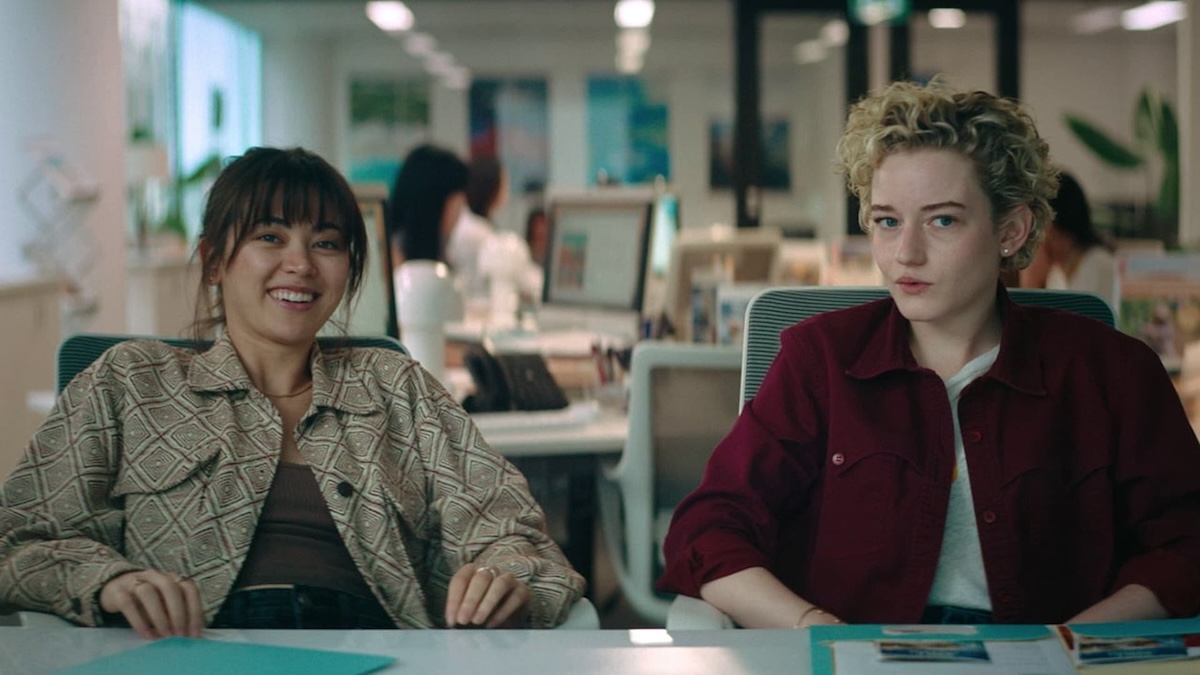
Julia Garner, celebrated for her Emmy-winning portrayal of Ruth Langmore in Ozark (2017-2022), delivers a masterfully calibrated performance as Hanna. Initially presenting as reserved and understandably apprehensive, she imbues her character with a relatable vulnerability. From politely declining a drink to avoid succumbing to a genetic predisposition for alcoholism to mentally outmanoeuvring an aggressive drunk, she convincingly portrays the internal battles and frustrations that countless service workers face in similar environments. Garner captures every nuance of a woman perpetually on guard, conveying a wealth of emotion through subtle facial expressions. While her timid demeanour conveys a sense of vulnerability in her new surroundings, her fiercely protective instincts gradually morph into anger. Her emotional journey will leave audiences simultaneously shocked and captivated as she desperately clings to hope. Garner’s genuine, phenomenal performance is likely to be unfairly overlooked during awards season.
Following her intensely poignant and equally tense debut The Assistant (2019), Kitty Green stages another masterfully constructed pressure cooker about the perils of being a woman. The same atmosphere permeates her sophomore effort as the filmmaker exhibits complete command over every frame and amplifies the undertones of disquietude.
Green expertly crafts moments of ambiguity and ominousness while methodically increasing the claustrophobic tension, reminiscent of Ted Kotcheff’s Wake In Fright (1971). The Royal Hotel initially amuses audiences with the customers’ drunken revelry and overly boisterous behaviour. Their harsh vernacular and inappropriate jokes are almost innocuously presented. However, after the sweltering Australian sunsets, these lighthearted sequences quickly devolve into palpable unease.
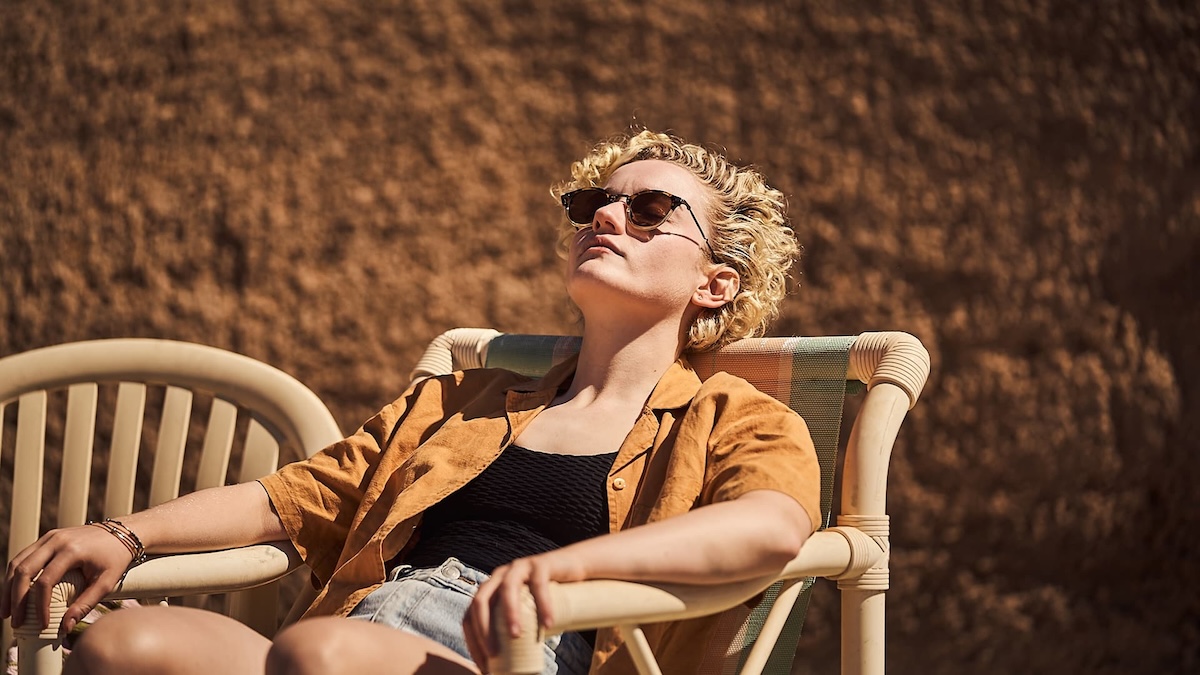
Simple bar conversations become imbued with fraught tension. Misogynistic expressions scrawled across a sandwich board quickly escalate as an inebriated silhouette lurches across darkened hallways. The anticipation of something terrible happening is unbearable, but the idea of what could potentially happen is terrifying.
Green’s masterful direction creates a palpable sense of dread, gradually turning The Royal Hotel into a menacing labyrinth. The hotel’s labyrinthine corridors and dimly lit rooms amplify the sense of isolation and vulnerability, while the constant presence of the drunken patrons serves as a constant reminder of the potential for danger.
The film’s exploration of female vulnerability and the insidious nature of male violence is both harrowing and thought-provoking. Green’s unflinching gaze at the darker aspects of Australian society is both disturbing and enlightening, leaving audiences with a lingering sense of unease long after the credits have rolled.
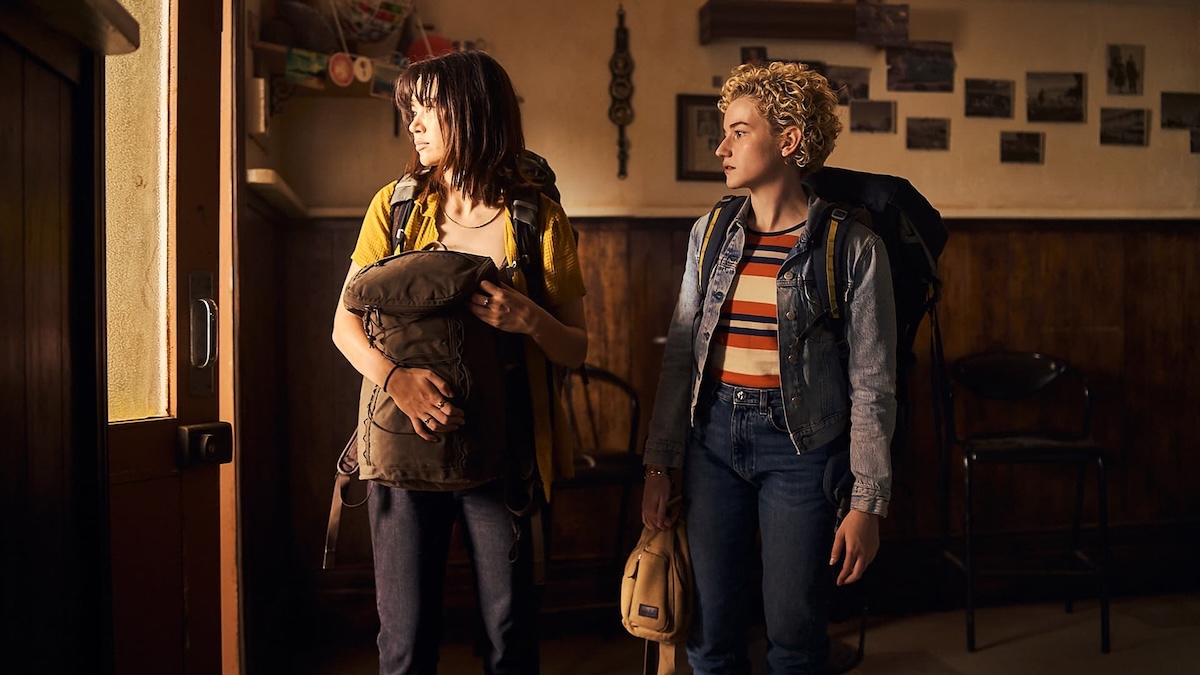
While the promotional images hint at The Royal Hotel’s embrace of traditional horror tropes, Jennifer Green’s cinematic approach adheres to the conventions of a suspenseful thriller. Cinematographer Michael Latham (The Assistant) masterfully crafts an atmosphere that paints the eponymous hotel and its surroundings as simultaneously captivating and forbidding. Australia’s Outback takes on an otherworldly quality through Latham’s skilful use of anamorphic lenses, creating an immersive and enveloping atmosphere. Latham’s exploitation of the vast desert landscapes and isolated setting is so effective that during certain sequences, it becomes difficult to distinguish laughter from screams. In contrast, the tension within the hotel stems from the ominous characters lurking just out of frame in the distorted compositions. Sound designer Jed Palmer’s (Upgrade) work complements the film’s unflinching tone, creating an immersive experience that draws the audience into the environment. The cacophony of voices is amplified to an almost assaultive level, while the sound of shattering glass jarringly disrupts the supposed normalcy of the setting, mirroring the characters’ escalating volatility. Palmer’s deft manipulation of sound intelligently heightens the simmering tensions between the characters, allowing Green to effectively convey her social message.
Green’s previous foray into gender discrimination and workplace harassment was marked by subtlety and nuance, but The Royal Hotel takes a bolder, more scathing approach, delivering a powerful indictment of toxic masculinity. Unlike some recent Hollywood films that tackled misogyny with heavy-handed ideological exaggeration (Promising Young Woman, Don’t Worry Darling), Green’s movie presents a nuanced and deeply unsettling portrait of the debilitating and often violent impact of male entitlement on women.
Through Hanna’s eyes, we witness the insidious pervasiveness of male attention, from Matty’s inappropriate jokes to Dolly’s toxic behaviour. These seemingly harmless remarks, often disguised in a veneer of playfulness, are perceived with a palpable sense of urgency and dread. Green masterfully conveys the cumulative effect of these micro-aggressions, demonstrating how they morph into very real and visceral threats.
Hanna’s constant state of vigilance and apprehension captures the isolating and disorienting experience of being surrounded by potential aggressors. Their overt threats are masked by underhanded pleasantries, ambiguous remarks, and weaponized compliments, creating a pervasive atmosphere of unease and danger.
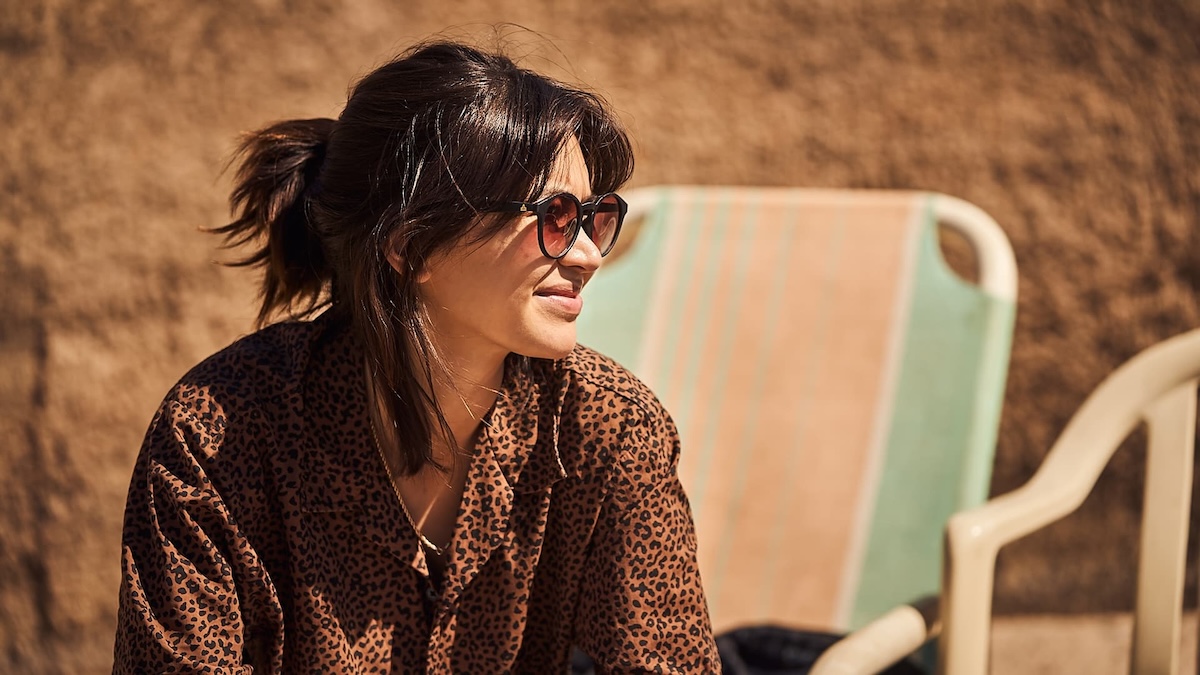
Green’s nuanced and unflinching portrayal of toxic masculinity is a powerful and disturbing reminder of the insidious harm that normalized misogyny inflicts on women. The Royal Hotel is not merely a critique; it’s a visceral and deeply unsettling exploration of the psychological and emotional impact of male entitlement.
Oscar Redding (Van Diemen’s Land) and Green’s screenplay offers a nuanced exploration of the contradictory nature of human behaviour and the deep-seated misogyny that permeates society. Navigating a male-dominated environment can be a fraught and unpredictable undertaking for women. As exemplified by Hanna and Liv’s promiscuous predecessors, adopting a submissive and carefree demeanour can serve as a means of evading danger. However, such an approach should not be considered an essential prerequisite for a woman’s personal safety. This dichotomy forms one of the more intricate aspects of Hanna and Liv’s relationship. Hanna’s air of superiority and cautious attitude consistently draw unwanted attention from the vulgar patrons. She’s acutely aware of the precarious situation and rightfully desires to depart from the establishment. In contrast, Liv thrives on the raucous energy and chooses to overlook the insidious undertones exhibited by the clientele. She persuades her friend to remain and rationalizes the customers’ behaviour as cultural differences. While Liv’s carefree attitude is understandable given their financial constraints, it simultaneously serves as the filmmaker’s pointed critique of the misogynistic behaviour that society condones.
Delving into the pervasive horrors of male violence that women encounter in their daily lives, The Royal Hotel is a thematically daring and unsettlingly realistic film. Kitty Green masterfully constructs the social ecosystem of her world and continues to showcase her talent for expertly building tension. However, the abrupt ending somewhat undercuts the richly developed complexity of The Royal Hotel. The film’s pursuit of cinematic justice steers the narrative into an unexpected realm where feminism is transformed into a stark portrayal of gendered brutality. Nevertheless, despite this minor shortcoming, Green further establishes herself as one of the most provocative and perceptive feminist filmmakers in contemporary cinema.
AUSTRALIA • UK | 2023 | 91 MINUTES | 2:39:1 | COLOUR | ENGLISH

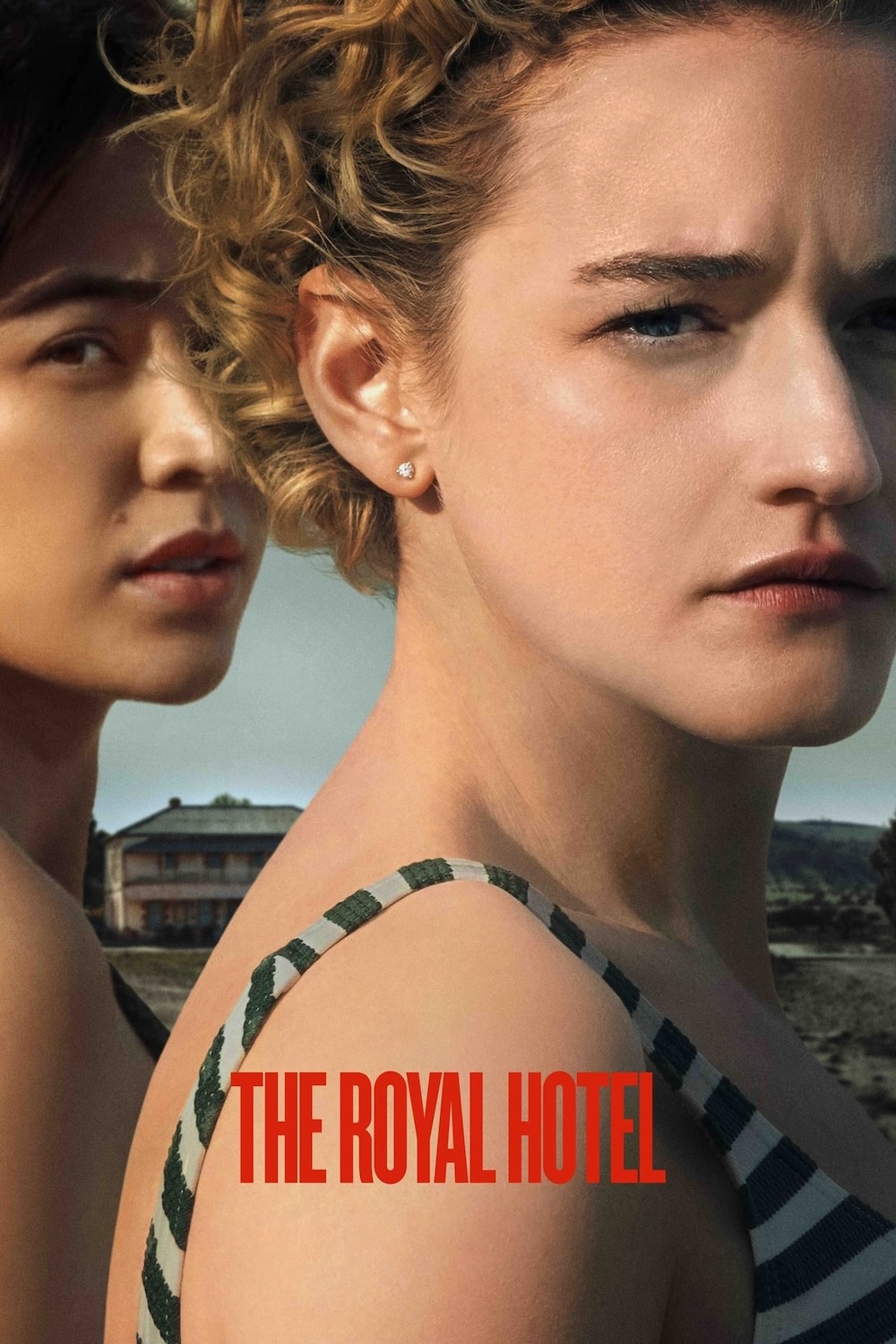
director: Kitty Green.
writers: Kitty Green & Oscar Redding.
starring: Julia Garner, Jessica Henwick, Toby Wallace & Hugo Weaving.
